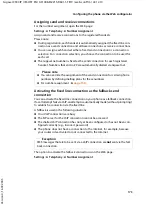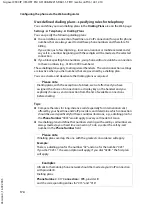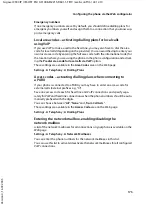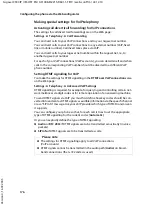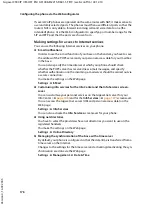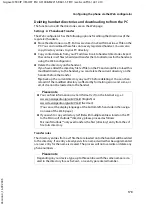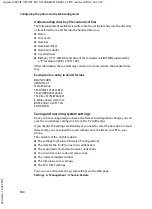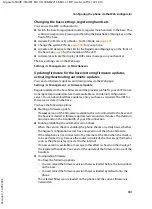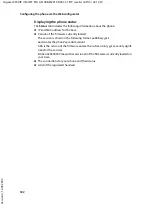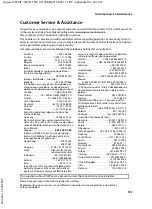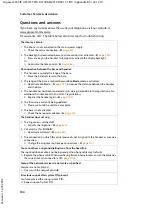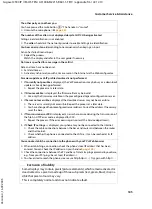
186
Customer Service & Assistance
Gigaset C590 IP / IM-OST EN / A31008-M2215-R601-1-TE19 / appendix.fm / 22.12.10
V
e
rsion 4, 16.0
9
.2005
Information on operating Gigaset VoIP telephones with
Network Address Translation (NAT) routers
In general no special telephone or router configuration is required when operating a Gigaset
VoIP phone with a NAT router. The configuration settings described in this section are only nec-
essary if you encounter one of the following problems.
Typical problems caused by NAT
u
No incoming calls are possible via VoIP. Calls to your VoIP phone number are not put through.
u
Outgoing calls via VoIP are not connected.
u
A connection is established with the other party, but you cannot hear them and/or they can-
not hear you.
Possible solution
1 Change the port numbers of the communication ports (SIP and RTP ports) on your tele-
phone (
£
"
1. Changing the port numbers for SIP and RTP on your VoIP phone
").
2 In some cases, you must also define port forwarding for the telephone's communication
ports on the router (
£
2. Setting port forwarding on the router
").
1. Changing the port numbers for SIP and RTP on your VoIP phone
On your VoIP telephone
, define different (local) port numbers for the SIP and RTP ports
(between 1024 and 49152).
u
These numbers must not be used by any other application or host in the LAN and
u
be considerably higher or lower than the SIP and RTP port numbers that you usually use (and
are preset on the phone).
This procedure is particularly useful if additional VoIP phones are connected to the router.
To change the SIP and RTP port numbers on your VoIP phone, proceed as follows:
¤
Connect your PC's browser to the Web configurator of the telephone and log in.
¤
Open the Web page
Settings
¢
¢
Advanced VoIP Settings
and change the
settings for the SIP and RTP ports
To help you remember the new port numbers (e.g. for router configuration), you can choose
numbers that are very similar to the standard settings, e.g.
¤
Save the changes on your telephone.
¤
Wait for the active VoIP connections to be re-registered. To do so, switch to the Web page
Settings
¢
Telephony
¢
Connections
to see the
Status
of your VoIP connections.
¤
Check to see whether the problem persists. If it does, perform step 2.
2. Setting port forwarding on the router
To ensure that your specified SIP and RTP port numbers are used on the WAN interface with the
public IP address, you must define port forwarding rules for the SIP and RTP ports on the router.
SIP port
49060
instead of
5060
RTP port
49004 to 49010
instead of
5004 to 5010


